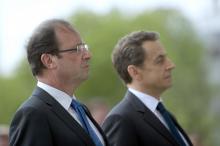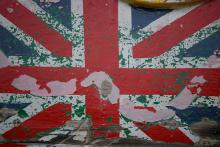Great Britain

Rabbi Jonathan Sacks made a name for himself as chief rabbi of Great Britain for nearly a quarter-century, a time of great tumult that included the Sept. 11, 2001, attacks, the influx of millions of Muslims into Europe, and the ongoing pressures to absorb and assimilate newcomers into a mostly secular society.
As chief rabbi, from 1991 to 2013, he stressed an appreciation and respect of all faiths, with an emphasis on interfaith work that brings people together, while allowing each faith its own particularity.

The move would bring London into line with Paris and New York, where no restrictions on Sunday shopping exist.
Strict anti-Sunday shopping laws came into being in the 19th century, under Queen Victoria.
In 1986, Prime Minister Margaret Thatcher tried to do away with them but she met stiff opposition from traditionalists and Christian churches.
Two decades later a compromise was reached, and most shops are now allowed to open for six hours on Sunday.

Merry what? Just in time for Christmas, new statistics show “no religion is the new religion” in Great Britain, according to a study released Monday.
The study, by Westminster Faith Debates, finds 38 percent adults in Great Britain, and 48 percent of those ages 18 to 29, checked no religion in online surveys conducted in January and June by YouGov.
These numbers fall midway between the findings of two other British studies that both show a trend away from the pews.

All across the European continent (and yes, Britain too), proponents of austerity are losing the argument and facing the political consequences. It is a concept that brought many of them to power in the fallout of the debt crisis, has now become “a dirty word”, and one that the ‘resurgent’ European Left continues to disavow.
While we all know that “it’s the economy, stupid,” what effect do these one-issue elections have on the health of our world? What happens when we become so focused on the money in (or not in) our pockets, that other vital issues fall by the wayside?
In their attempts to prove the ‘austerians’ (very different people from the Austrians) wrong, have those who see stimulus of the economy as the path to prosperity inadvertently lost sight of what is really important to the societies that they govern? Is there a risk that economic growth becomes an end goal, rather than a means to something greater – true human prosperity and investment in human capital?

CANTERBURY, England — The British government on Thursday launched a 12-week consultation that is widely expected to lead to the legalization of same-sex marriage in England and Wales, despite strong opposition from Catholics and some Anglicans.
"Should two people who care deeply for each other, who love each other and who want to spend the rest of their lives together be allowed to marry?" Home Secretary Theresa May wrote in The Times of London.
"That is the essential question behind the debate over the government'splans to extend civil marriage to same-sex couples."
The coalition government led by Prime Minister David Cameron and his deputy, Nick Clegg, has made it clear that it wants to see a same-sex marriage law before the next general election in 2015. It is also supported by the New Labour opposition leader, Ed Miliband.
The consultation will also include an option of retaining the status quo and that has met with the approval of senior church figures, as well as a number of Conservative lawmakers.

Gandhi once said that "a nation's greatness is measured by how it treats its most vulnerable." Today, it strikes me that the "Great" in Great Britain should probably be quietly dropped, and replaced with "Abject," "Inadequate" or something equally disparaging.
For that is how the UK is currently treating its most vulnerable — the young, the elderly, the disabled — inadequately, abjectly and without compassion. For the last few weeks, a battle has been raging between the government, the legislature, the Church, organizations, and the general public over a piece of legislation called the Welfare Reform Bill.
The bill is wide ranging in its ‘reforms’, covering a myriad of social security measures – from disability benefits, to welfare offered to the unemployed and their families and children. At a time when austerity and budget cutting is front and center of the government’s agenda, ‘reform’ is a by-word for ‘cutbacks’.
The crux of the legislation is an attempt to distinguish between different categories of "the poor," to weed out the “undeserving” from the “deserving.” Sadly, as can be seen from the uproar that the Bill has caused, this attempt has failed.